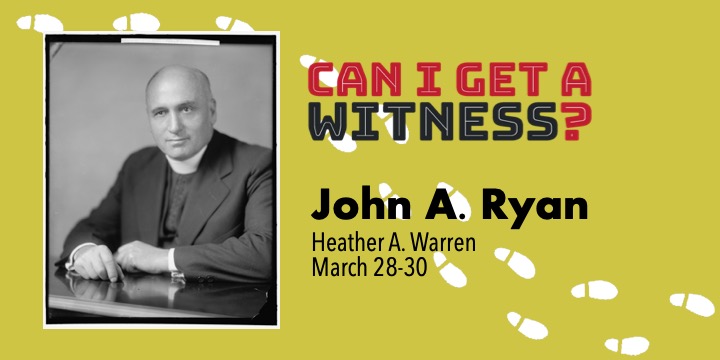
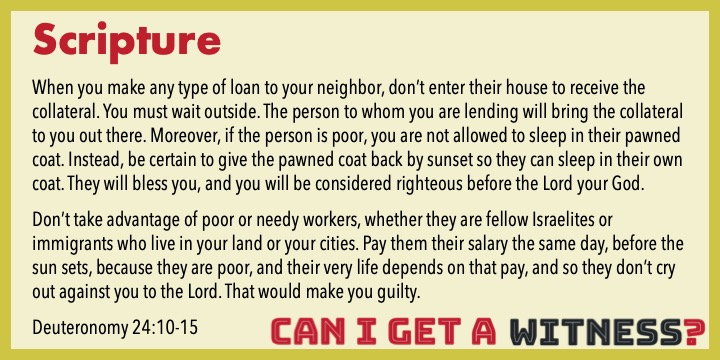
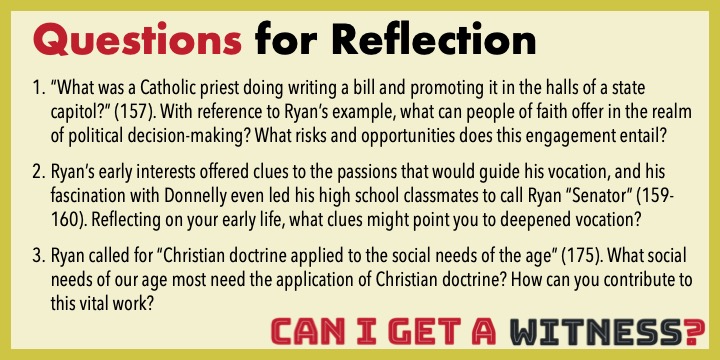
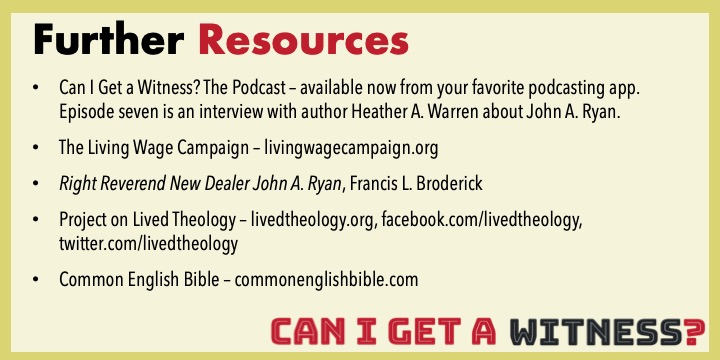




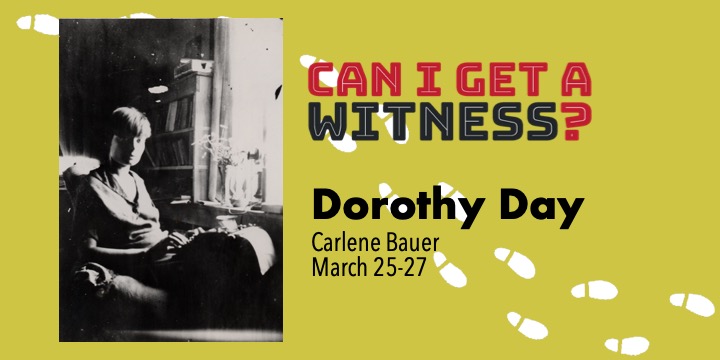
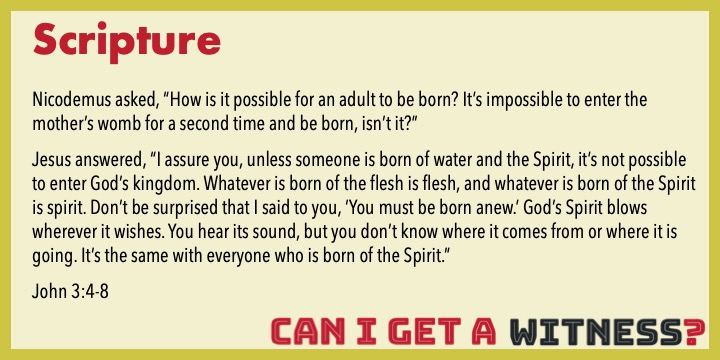
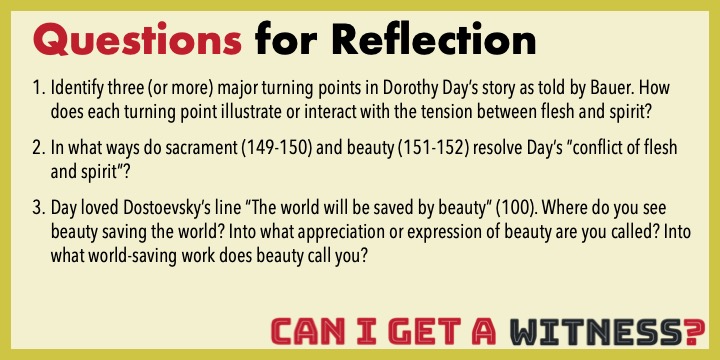
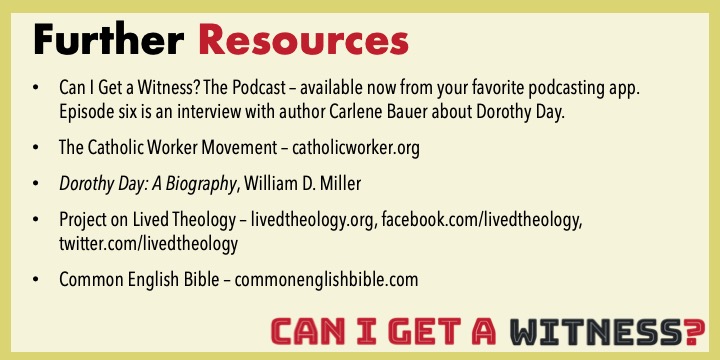
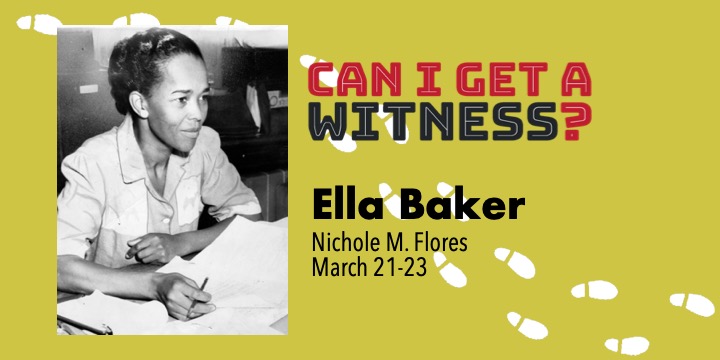
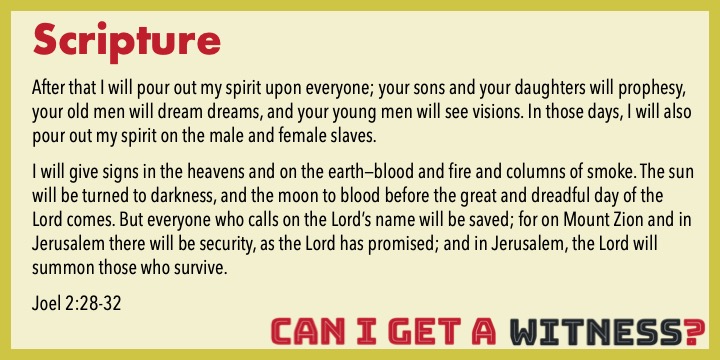
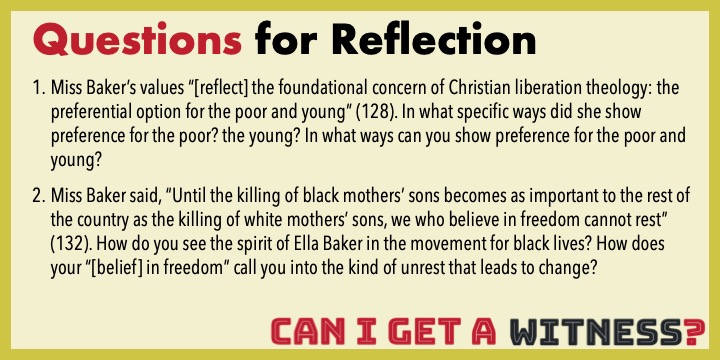
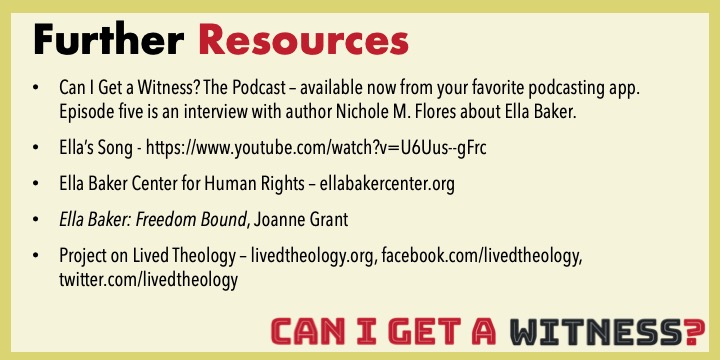
“These cockeyed people who go about talking of love and good-will in the midst of all this oppression and hell make me pretty tired,” Kester said. “We won’t love people into the kingdom, we’ve got to bust this damn society to hell before love can find a place in it.”
We are grateful to be spending the next few days with Howard Kester through the writing of Peter Slade.
Join the conversation in our special Lenten Can I Get a Witness? Facebook group.
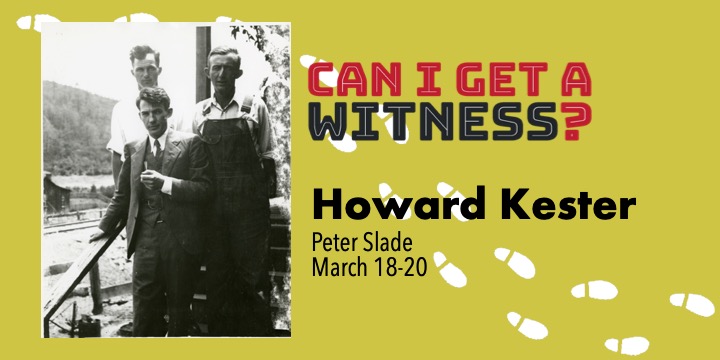
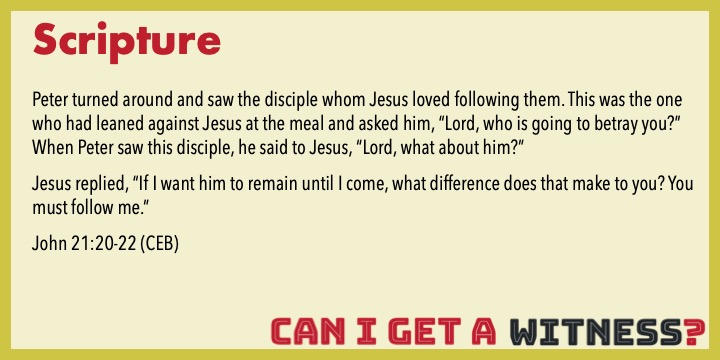
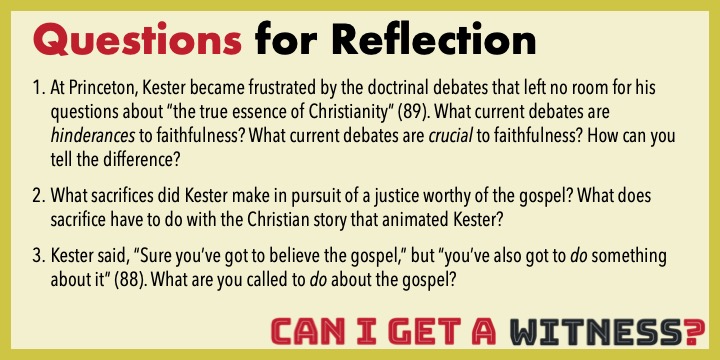
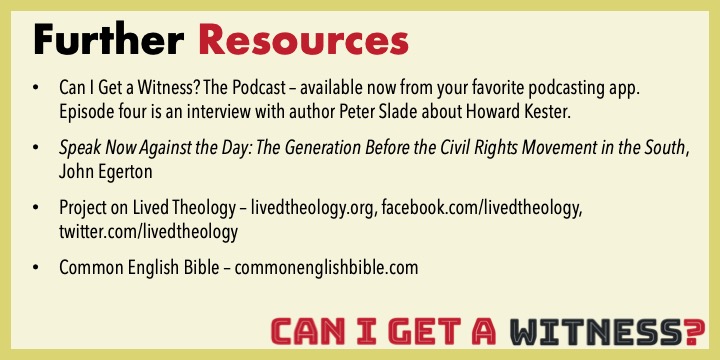
In chapter three, author Grace Kao shares the story of Yuri Kochiyama.
“…public profiles of Yuri outside of Asian American circles have typically emphasized the longevity of her activist career and the remarkable, cross-racial solidarity she showed with others in numerous campaigns. While such portraits are technically correct, they remain incomplete insofar as they leave out two key aspects of her biography. The first is the role religion, specifically a service-oriented and this-worldly form of Christianity, played as a motivating force in her life. The second is the explicit identification of unjust imprisonment as the issue Yuri felt most passionate about” (65).
Join the conversation in our special Lenten Can I Get a Witness? Facebook group.
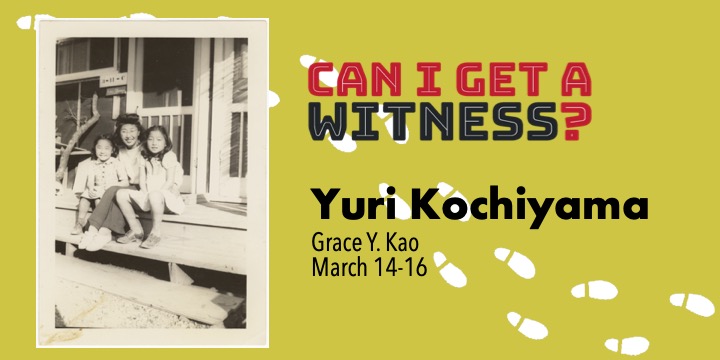
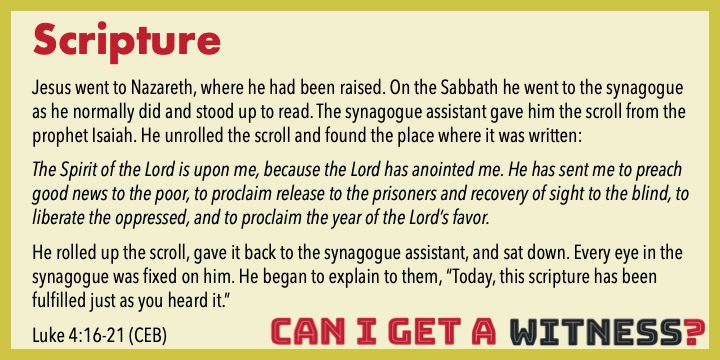
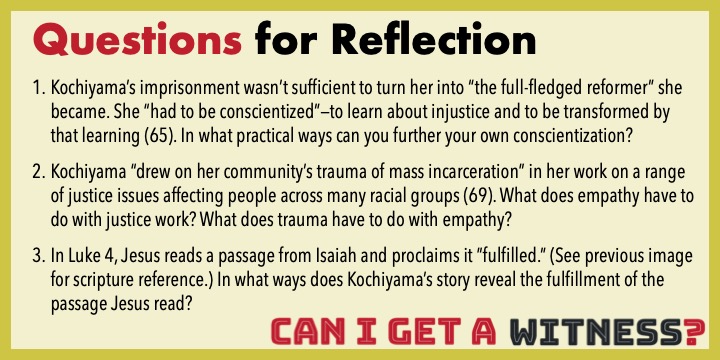
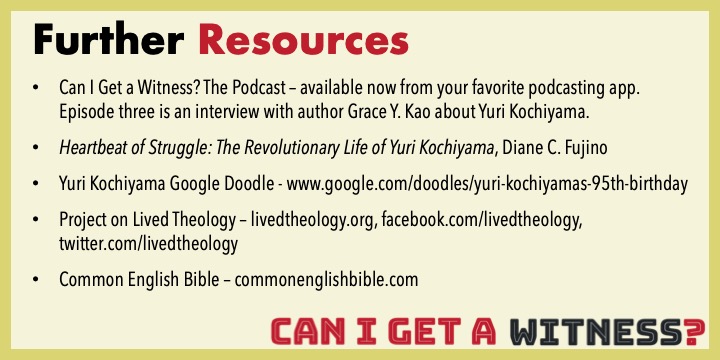
What a treat to spend a few days with Howard Thurman. Donyelle C. McCray’s lyrical chapter focuses especially on his tenderness.
Join the conversation in our special Lenten Can I Get a Witness? Facebook group.
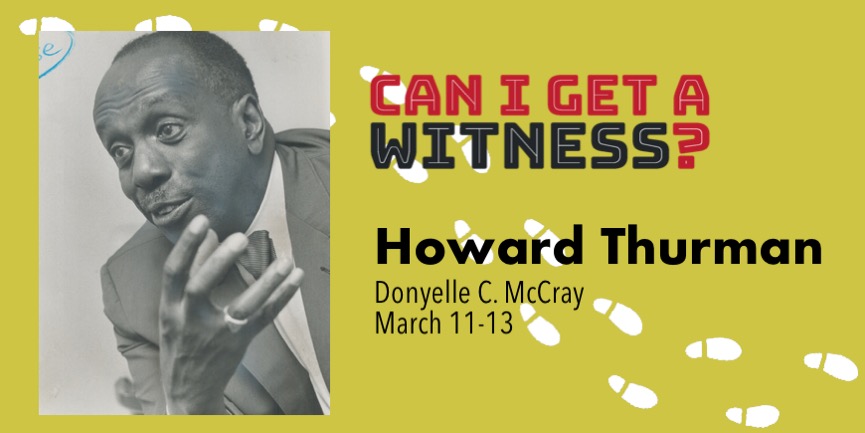
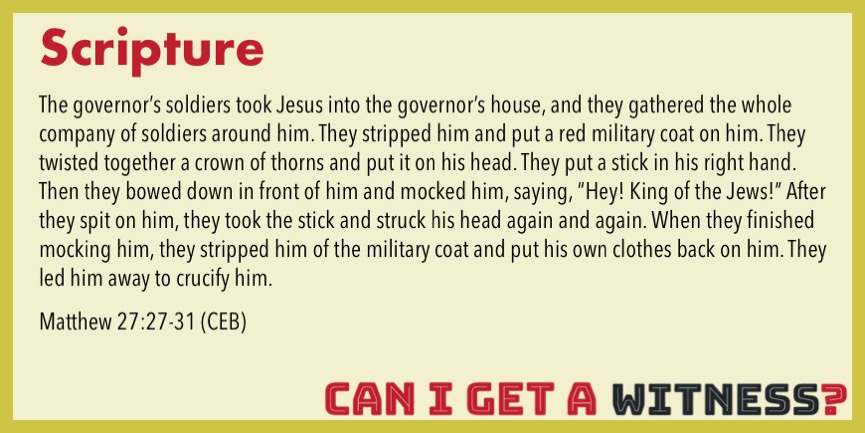
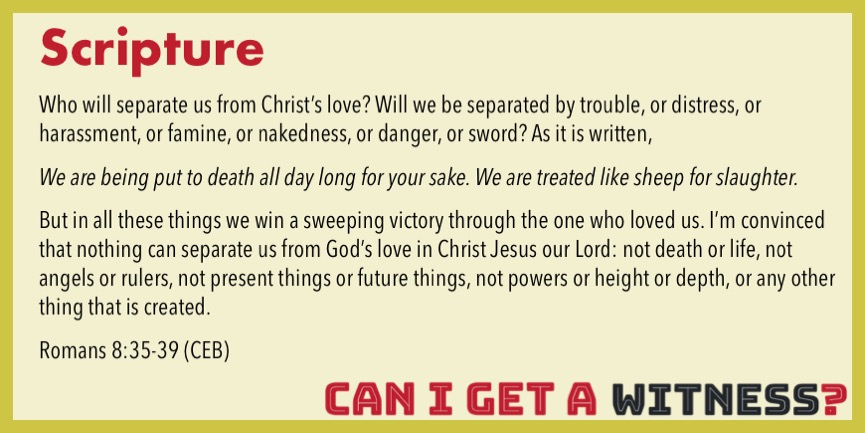
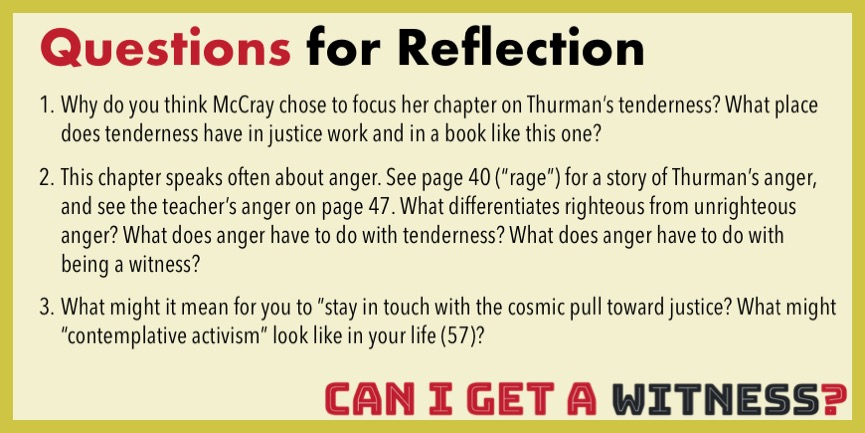

For the next three days, we journey with Cesar Chavez, whose organizing toolbox included not only strikes, pickets, and boycotts, but also fasting, prayer, Eucharist, and pilgrimage.
Co-editor and contributor Dan Rhodes writes, “Nothing may capture the arc of his witness like these words from his ‘Prayer of the Farmworkers’ Struggle,’ where he pleads: ‘Show me the suffering of the most miserable / So I will know my peoples’ plight / Free me to pray for others….Help us to love even those that hate us / So that we may change this world'” (36).

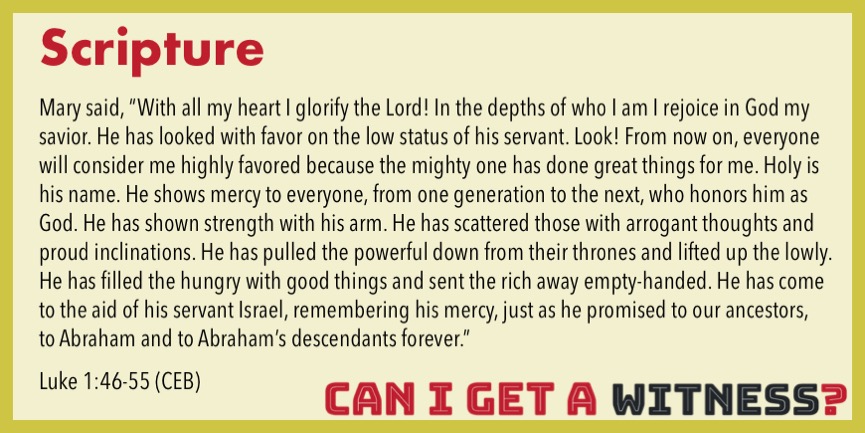
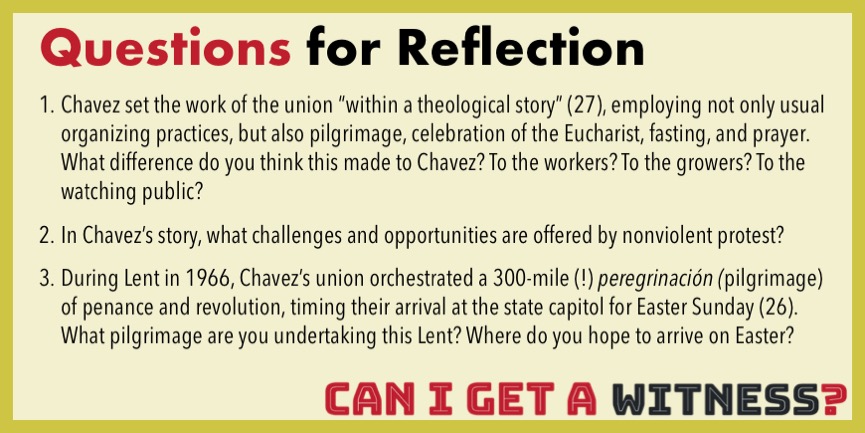
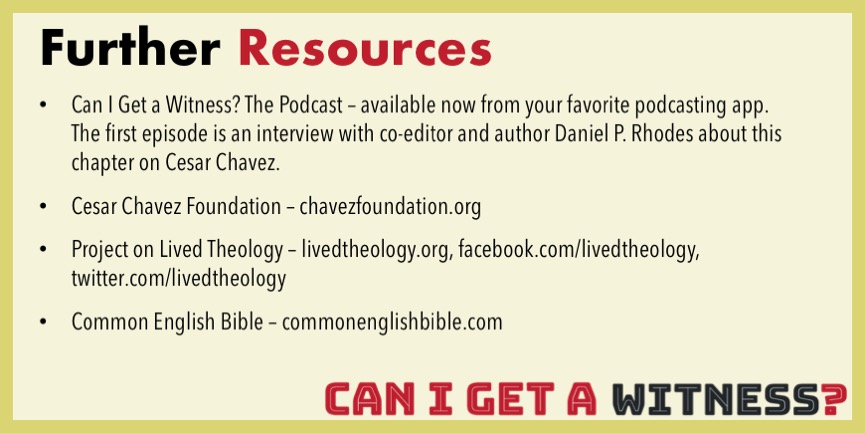
It’s Ash Wednesday! Here’s our first reading guide for today: the introduction.
The stories of peacemakers, community builders, and agitators for faith and justice “are difficult to hear–and to find. These people are like wild and crooked trees. They are gnarled and weathered, their very flesh bearing the marks of storms, persistent droughts, and long winters. They don’t care if they’re growing in inconvenient places; they grow where they are. They are unrepentantly unruly. They live in the freedom of Christ with open hearts and minds. These people aren’t good for church growth or the accumulation of political power. They don’t make anybody any money. Yet we are confident that their examples will outlast those of the multitudes scrambling to see who can bow down first to country, or party, or profit, or another reigning idol of the day” (2-3).
You can join the conversation on Facebook, Twitter, or in our special Lenten Facebook group. Find more information about the book here.




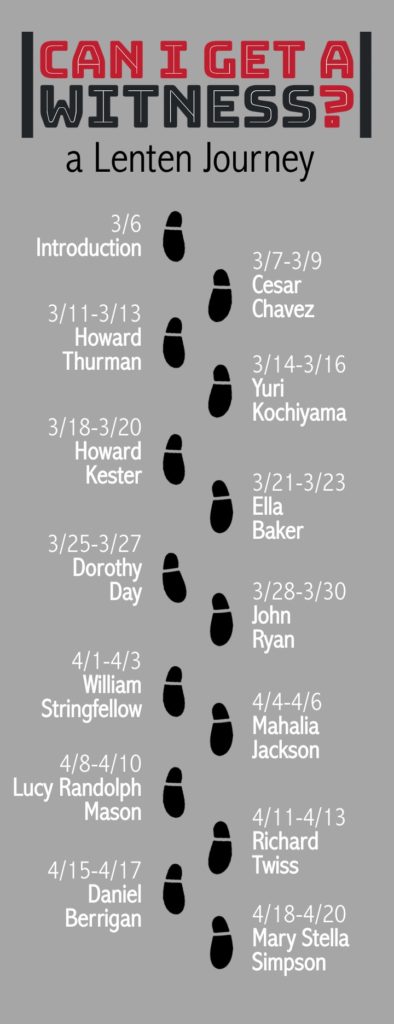
Join us on a journey through Lent with Howard Thurman, Dorothy Day, Mahalia Jackson, Cesar Chavez, and more witnesses to faith and justice. We’ll be reading our new book, Can I Get a Witness? Thirteen Peacemakers, Community Builders, and Agitators for Faith and Justice throughout the Lenten season, and we’d love for you to join the conversation.
For each chapter, we’ll post reading guides here on this page as well as on Facebook and Twitter. Those guides will include scripture passages, questions for reflection, and suggestions for other resources, including our companion podcast (links to come). You can also join our Facebook group to participate directly in the conversation.
Stay tuned!
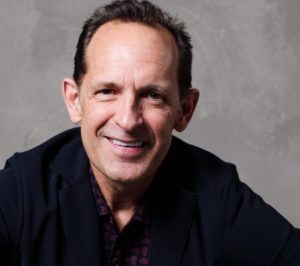
On February 23, Charles Marsh will deliver a lecture at the Berkeley Center for the Study of Religion as part of their culminating conference for a project focused on the place of theology in the university.
The BCSR says the main goal of the project “was to challenge narrow conceptions of both secular learning and ‘theology,’ in hopes of fostering robust conversation about the teaching of religion in the pluralist setting of the modern university.” This conference will focus on three major areas of inquiry: Theology and the History of Learning, Theology and Modern Secular Disciplines, and The Limits and Possibilities of Theology in a Pluralist World. It runs from February 22-23, and Marsh will be giving his lecture on February 23 at 4:00.
Find more event information on BCSR’s website here. For a full listing of our spring speaking engagements with Charles Marsh and others, visit our events calendar here.
Charles Marsh is the Commonwealth Professor of Religious Studies at the University of Virginia and the director of the Project on Lived Theology. His research interests include modern Christian thought, religion and civil rights, Dietrich Bonhoeffer, and lived theology. His publications include Strange Glory: A Life of Dietrich Bonhoeffer (2014) and God’s Long Summer: Stories of Faith and Civil Rights (1997), which won the 1998 Grawemeyer Award in Religion.
Enter some keywords to begin a seach.